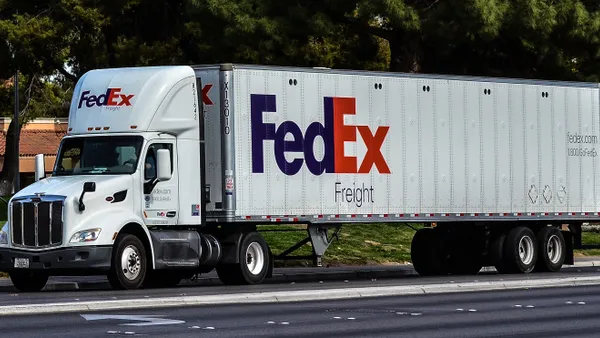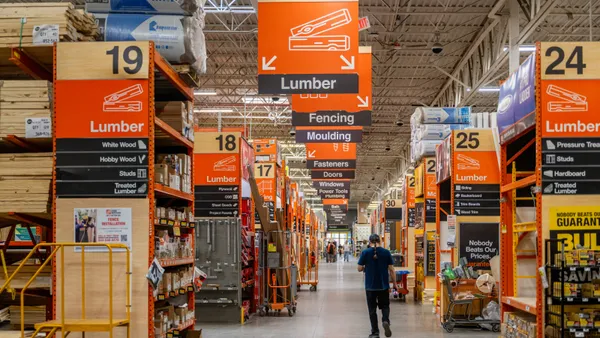Dive Brief:
- Industry experts are predicting higher demand for freight broker services in light of a possible capacity crunch of 5-10% resulting from the ELD mandate, ThomasNet.com reported Monday.
- Reduced driver hours are a possible result of the HOS and ELD, the experts say, although the rules aren't changing as a result of the ELD, only the way hours are recorded.
- Because the economy is expected to further strengthen in 2018, freight brokers could see an even greater need for drivers, creating more pressure in the industry.
Dive Insight:
The trucking industry has long been rife with speculation about possible fallout from the ELD mandate. From delayed adoption by smaller fleets that fear costs to estimates that driver shortages could lead to rate hikes of 20% or more, skepticism about easy adoption has been continual. Independent owner operators are the most concerned, leading to an ongoing though unsuccessful battle against instituting the change.
Yet, the only real change will be in how driving hours are recorded. Certainly as time passes, exceptions or changes to the rules will be made. Already the Commercial Vehicle Safety Alliance (CVSA) has delayed true enforcement of the mandate until April of 2018, in order to ease the industry into compliance without immediate penalties.
Many within the industry see the change as a net positive.
“The ELD mandate is not changing the legal hours of service, it is only moving the recording/management of hours from paper to electronic device," Steve Raetz, Director of Research and Market Intelligence at C.H. Robinson told Supply Chain Dive. "In general, it does seem likely that the market will experience some tension from the ELD mandate because it does remove some flexibility to the management of hours that the market historically has taken," he added.
However, rather than guess at the effect of implementation, Raetz suggests a "wait and see" attitude.
"It is unclear how much tension will result because it is unclear how much latitude the carrier community has been taking," he said. "We also know from talking with the carrier community, that while ELD's have influenced the effective use of the fleets, over time, drivers learn how to use the devices and usually earn some time back or all of lost hours.”













